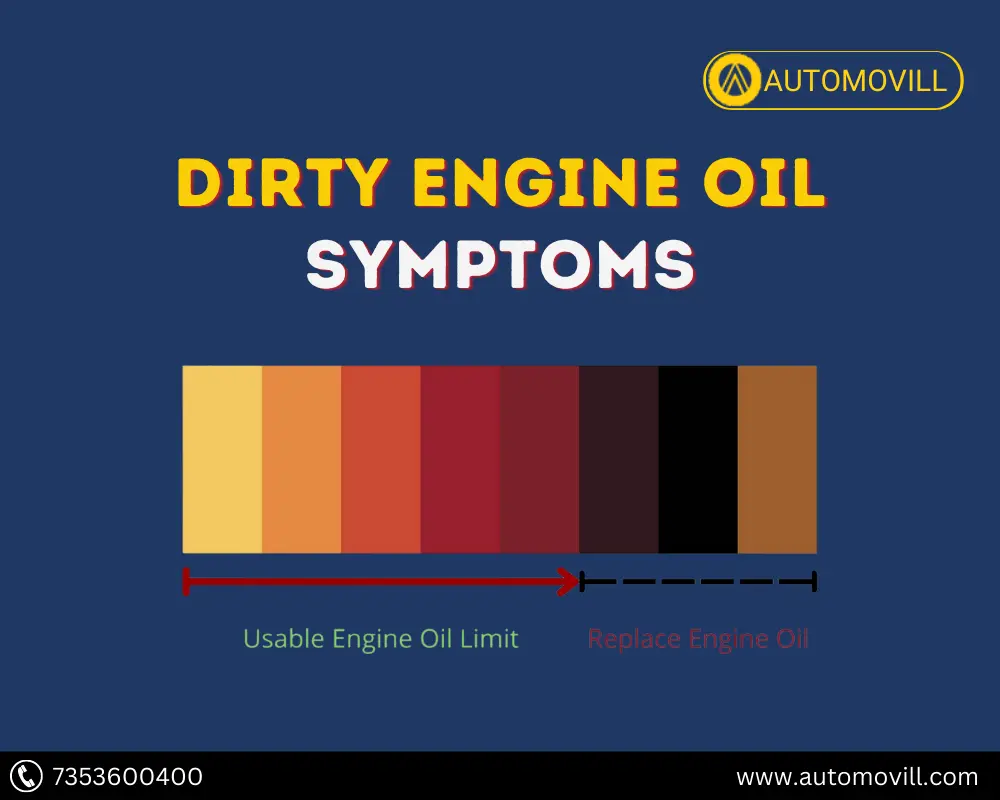
The primary function of engine oil is to lubricate the engine’s moving parts, such as the pistons, bearings, and valves, to reduce friction and wear. This helps to prevent engine damage and extend the life of the engine. Additionally, engine oil helps to cool the engine by absorbing heat generated during operation, and it helps to keep the engine clean by trapping dirt and debris that can cause damage.
What causes engine oil to become dirty?
There are several reasons why engine oil can become dirty over time:
Contamination from the environment: As your engine runs, dirt, dust, and other debris can make their way into the engine and mix with the oil. This contamination can come from a variety of sources, including road debris, pollutants in the air, and even the engine’s own components.
- Internal engine wear: Over time, the moving parts inside your engine can start to wear down and shed tiny metal particles. These particles can mix with the engine oil and cause it to become contaminated.
- Heat and pressure: The extreme heat and pressure inside your engine can cause the oil to break down over time, which can cause it to become less effective at lubricating and protecting the engine.
- Old age: Even if your engine oil isn’t contaminated with dirt or debris, it can still become dirty simply through old age. As oil ages, it can thicken and become less effective at lubricating the engine.
- Neglect: If you don’t change your engine oil regularly, it can become extremely dirty and lose its ability to protect the engine. This can lead to serious engine damage over time.
It’s important to change your engine oil regularly and use high-quality oil to help prevent contamination and ensure optimal engine performance. By doing so, you can help extend the life of your engine and avoid costly repairs down the road.
Symptoms of Dirty Engine Oil
Dirty engine oil can cause a number of symptoms that can affect the performance and longevity of your vehicle’s engine. It’s important to keep an eye out for these symptoms and get your engine oil changed regularly to prevent long-term damage. Here are some of the most common dirty engine oil symptoms:
- Reduced fuel efficiency: Dirty engine oil can cause your engine to work harder than it needs to, which can lead to reduced fuel efficiency. This means you’ll be spending more money on gas than you need to, which can add up over time.
- Engine overheating: Dirty engine oil can cause your engine to overheat, which can lead to serious damage. Overheating can cause your engine to seize up, which can be expensive to repair or even require a full engine replacement.
- Loud engine noises: If you hear loud knocking or ticking noises coming from your engine, it could be a sign that your engine oil is dirty. This is because the dirt and debris in the oil can cause the engine’s moving parts to grind against each other, which can cause damage and lead to a breakdown.
- Poor engine performance: Dirty engine oil can also cause your engine to perform poorly, with reduced acceleration and power. This can be particularly noticeable when you’re trying to accelerate quickly or climb a hill, as your engine may struggle to keep up.
- Warning lights: If your vehicle has a dashboard warning light for the oil pressure or oil level, this could be a sign that your engine oil is dirty or low. This warning light may come on intermittently, but if it stays on constantly, you should take your vehicle to a mechanic right away.
- Smoky exhaust: Dirty engine oil can also cause your vehicle to emit smoky exhaust, particularly if the oil has become so contaminated that it’s burning off inside the engine. This can be harmful to the environment and may cause your vehicle to fail emissions tests.
If you notice any of these symptoms, it’s important to get your engine oil changed as soon as possible. Regular oil changes can help prevent dirty engine oil and keep your engine running smoothly. Most manufacturers recommend changing the oil every 5,000 to 7,500 miles or every six months, whichever comes first, but you should always refer to your vehicle’s owner’s manual for specific recommendations. By keeping your engine oil clean, you can help ensure the longevity and performance of your vehicle’s engine.
